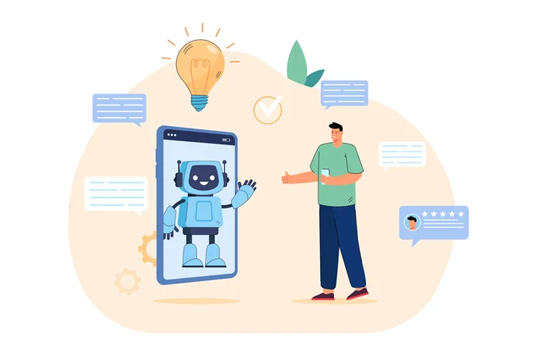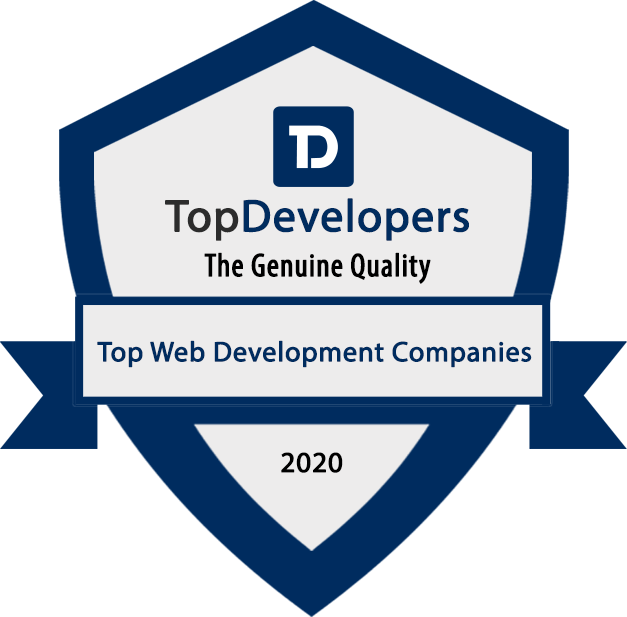In today’s hyper-competitive startup ecosystem, speed and precision are more critical than ever. Entrepreneurs are constantly racing to move from idea to product, but success doesn’t just depend on building quickly—it hinges on building the right thing. Validating product-market fit (PMF) early ensures you're solving a real problem for a real audience. Yet, traditional validation methods—manual interviews, time-consuming research, and costly MVP builds—can slow down progress or mislead direction.
This is where artificial intelligence comes into play. AI isn’t just transforming product experiences; it’s revolutionizing how startups validate, iterate, and reach PMF faster than ever before. From generating user personas and analyzing sentiment to building functional prototypes and testing market responses, AI offers a lean, scalable path from ideation to validation. This blog explores how to harness AI throughout your MVP journey to ensure what you build meets real user demand—quickly and affordably.
The Importance of Validating Product-Market Fit Early
Product-market fit (PMF) is what separates successful startups from those that struggle to scale or even survive. It signifies that your product resonates deeply with a specific audience—and that the market is willing to pay for the value you deliver. Without PMF, growth strategies, marketing spend, and even product enhancements become wasted efforts. Yet, many founders make the mistake of assuming PMF will “just happen” if they build something cool.
Validating PMF early gives startups a competitive edge. It helps allocate resources more wisely, focus on solving high-priority problems, and build customer-centric roadmaps. Startups that validate early can test business models, identify viable pricing strategies, and gather real-world usage patterns to avoid costly pivots down the road.
AI makes this process faster and more precise. Instead of relying solely on guesswork or limited feedback, founders can use AI to explore massive datasets, simulate user personas, and identify trends in customer language. Early validation becomes a continuous, data-informed process, giving founders the confidence to iterate faster—and with direction. The earlier this clarity is achieved, the sooner startups can evolve their product with momentum and intention.
Using AI for Customer Discovery and Market Research
Understanding your market is the foundation of any successful product strategy. AI can dramatically enhance the discovery phase by delivering actionable insights at scale—faster than manual methods ever could. Startups can now harness natural language processing, sentiment analysis, and clustering algorithms to uncover unmet needs, behavior patterns, and whitespace in the market.
- Analyzing Customer Reviews and Forums: AI can scrape and analyze thousands of online reviews, Reddit threads, and social media comments to detect patterns in user pain points. Sentiment analysis tools like MonkeyLearn or Google Cloud Natural Language identify common frustrations and preferences that might otherwise go unnoticed.
- Competitive Intelligence: Tools like Crayon or Similarweb powered by AI help assess competitors’ product positioning, content strategies, and feature updates. This allows startups to identify market gaps or overserved segments they can avoid.
- Generating User Personas with LLMs: AI models like GPT-4 can create draft user personas by processing available customer feedback and demographic data. These personas can include motivations, frustrations, and behavioral patterns to guide design and development.
- AI-Powered Clustering for Niche Segments: Tools like RapidMiner or DataRobot can segment large datasets using unsupervised learning to uncover micro-niches. Startups can then focus messaging and product features on specific high-value user segments.
When startups use AI to discover markets, they reduce the risk of false assumptions and missed opportunities. The breadth and depth of AI analysis surpass traditional research methods and yield insights that lead to better product alignment from day one. This foundation sets the tone for a smarter, more focused product roadmap.
Rapid Ideation: Generating and Refining Product Ideas with AI
The ideation phase can be exhilarating but also overwhelming. With so many potential directions to pursue, startups risk overthinking or spreading their focus too thin. AI can streamline this process by offering targeted, relevant suggestions aligned with market pain points, saving teams time and sharpening clarity.
- AI-Powered Brainstorming: Tools like ChatGPT and Jasper.ai simulate brainstorming by offering idea variations based on user personas or desired outcomes. With the right prompts, these tools help founders overcome creative blocks and explore a wider range of possibilities.
- Feature Ideation Assistants: Notion AI and Aider.ai let you ideate features inside product documentation or planning boards, using context-aware prompts to refine your thinking.
- Scoring & Filtering Tools: Feedly, Frase, and EvenUp.ai use AI to rank content ideas, prioritize topics, or assess the uniqueness of a product concept in a crowded landscape.
These tools can be used individually or in tandem to drive cross-functional ideation sessions. Once an initial set of ideas is formed, AI tools like Airtable with GPT integration or Linear’s AI-based planning assistant can help you map dependencies, assign priorities, and estimate delivery timelines.
The ideation process becomes more than just creative—it becomes collaborative, data-informed, and dynamic. As ideas are validated by user signals and market alignment, startups can shift from exploration to execution with sharper confidence.
Building the MVP with AI-Driven Development Tools
Once you’ve validated your concept, the next step is building a minimum viable product that can be tested in the real world. AI accelerates this build phase through code generation, low-code platforms, and smart prototyping tools. Startups no longer need to rely solely on full-stack teams or manual workflows to launch their MVP.
- Low-Code/No-Code Development: Platforms like Bubble, Glide, and OutSystems leverage AI to help build functional apps without writing traditional code. They’re ideal for early MVPs that need to demonstrate value without complex backend logic.
- AI Code Assistants: Tools like GitHub Copilot, Tabnine, and Amazon CodeWhisperer use AI to auto-generate boilerplate code, suggest improvements, and complete logic functions. This increases development speed and helps non-expert developers contribute.
- Prototyping with AI: Tools like Uizard, Figma AI, and Framer AI help translate product ideas into interactive visual designs. They assist in UX layout suggestions, responsive screen variations, and real-time mockup iterations.
AI-driven development transforms the MVP build from a long, resource-heavy process into a nimble, cost-efficient sprint. Startups can get real products into user hands faster and validate assumptions with fewer engineering hours. This lets teams focus on learning and improving, rather than wrestling with infrastructure from the outset.
Testing with Real Users Using AI-Powered Feedback Loops
Launching an MVP is only half the battle. The real insights come from how users interact with it. AI plays a critical role in gathering, interpreting, and acting on user feedback, making it easier to identify what’s working—and what’s not—at scale.
- AI Chatbots for Feedback: Tools like Intercom, Drift, and Tidio use AI to collect structured and unstructured user feedback during onboarding or support interactions. These bots can detect patterns, recommend fixes, or trigger alerts for urgent issues.
- Sentiment Analysis on Feedback: Platforms like Lexalytics, Thematic, and IBM Watson NLP scan open-ended responses for sentiment, urgency, and patterns. This helps product teams gauge emotional resonance and frustration points.
- Automated Usage Analytics: AI tools such as Mixpanel with AI-powered cohorts, Heap’s autocapture system, and FullStory with heatmapping provide visual insights into user paths, drop-offs, and intent.
- In-App Feedback Personalization: With tools like Appcues or Chameleon, you can personalize feedback flows based on user behavior and lifecycle stage, using AI to prompt the right message at the right time.
These tools help create a continuous feedback loop—collect, analyze, act—that’s essential for iterating quickly. Startups that embed these loops into their MVP process can detect issues earlier, uncover latent user needs, and improve product satisfaction over time.
Iterating Based on Insights: Refining Your MVP
Iteration is not just about tweaking features—it's about systematically refining the product through continuous learning. AI tools enable data-driven iteration by revealing behavioral trends, surfacing actionable feedback, and even recommending improvements.
- User Behavior Clustering: Tools like Amplitude and Mixpanel use AI to group users into behavior-based cohorts. For example, one cohort might drop off after onboarding, while another engages heavily with a specific feature. These patterns inform targeted improvements.
- A/B Testing at Scale: Platforms like Optimizely X and VWO use AI to predict which variants will perform best, dynamically adjusting traffic allocation in real time.
- Predictive Personalization: Using tools like Dynamic Yield or Adobe Sensei, startups can tailor user experiences based on inferred preferences—such as auto-suggesting actions or customizing dashboards.
Consider a healthtech startup that launched a symptom checker app. With AI analytics, they discovered that users often searched for mental health-related terms late at night. They used this insight to introduce calming UX patterns and quick access to wellness content during those hours—boosting engagement and satisfaction.
Such examples illustrate that iteration is where startups separate promising ideas from scalable solutions. AI ensures each loop of feedback and refinement brings more clarity, not just more data.
Avoiding Common Pitfalls When Using AI for MVP Validation
While AI offers speed and efficiency, it’s not without risks. Over-relying on AI-generated insights without grounding them in real-world user interactions can lead to false positives—or worse, products built on faulty assumptions. Knowing the limitations of AI helps you use it responsibly.
- Synthetic Feedback Isn’t Enough: LLMs can simulate feedback or personas, but real users are unpredictable. Use AI to enhance discovery, not replace it.
- Small Sample Sizes Skew Results: AI can analyze patterns quickly, but without enough data, results may be misleading. Always validate insights with multiple touchpoints.
- Over-automation Reduces Context: Automated tools may miss nuance or cultural context. Human oversight is still essential, especially in UI/UX or messaging decisions.
AI is a means, not an end. Smart founders blend AI insights with qualitative validation and user interviews to triangulate truth. By being critical of your data sources and aware of model limitations, you preserve trust, relevance, and accuracy in your MVP process.
Partnering for PMF: The Classic Informatics Advantage
At Classic Informatics, we specialize in helping startups harness AI not just to build—but to validate, adapt, and grow smarter. With years of experience delivering AI-powered MVPs, we know what it takes to move quickly while staying aligned with market needs.
Our cross-functional teams bring together AI engineers, product strategists, and growth experts to support startups through every phase of product validation. From setting up AI-powered user research to building MVPs using low-code and open-source AI, we ensure every dollar spent moves you closer to product-market fit.
We don’t just deliver code—we deliver clarity, speed, and results. With scalable architectures, efficient delivery models, and hands-on expertise, Classic Informatics is the partner you need to turn your vision into a product users love.
Validate with Confidence—AI Can Help You Get There
The road from idea to product-market fit can be unpredictable, but with AI in your toolkit, it becomes navigable, scalable, and intelligent. You no longer need to rely solely on gut feelings or wait for months of manual feedback. AI enables you to discover what customers need, build MVPs faster, and iterate smarter.
But success with AI isn’t just about adopting tools—it’s about applying them with intent. The most impactful startups don’t chase every trend. They use AI to validate, focus, and scale efficiently. They combine machine learning with user empathy, and velocity with clarity.
At Classic Informatics, we’re here to help you turn your bold ideas into validated MVPs—powered by AI and guided by experience. Whether you need a prototype, an AI strategy, or a full-scale product roadmap, we’ve got the expertise to help you win your market.






















